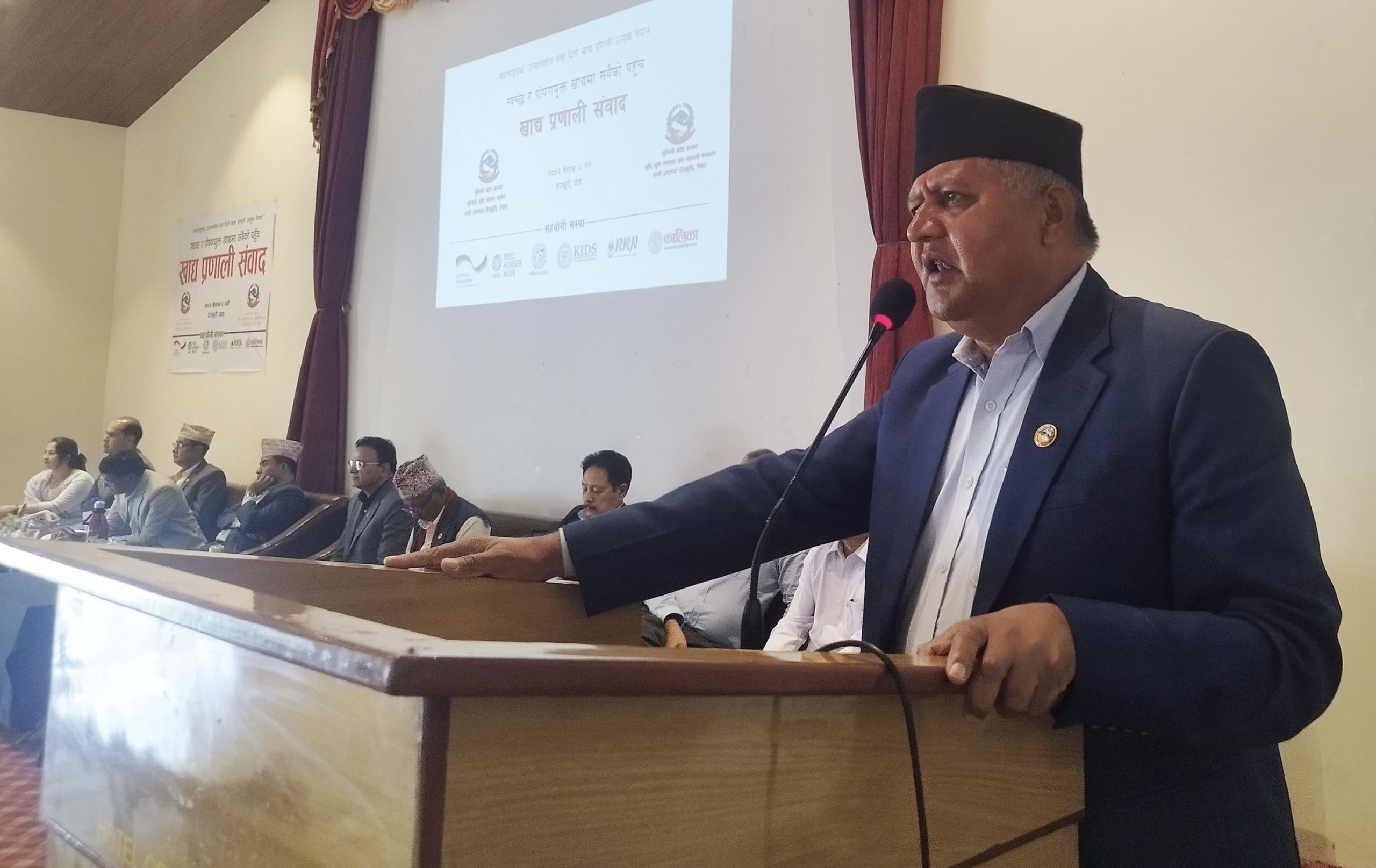
Lumbini: Chief Minister of Lumbini Province, Chet Narayan Acharya, has stressed the need for collaboration among all sectors to end the problem of malnutrition in the province. He said the increase in maternal mortality rate, child mortality rate and child marriage along with malnutrition was a matter of concern and the government was committed to reforms.
Speaking at a food system dialogue organized at the province capital, Dekhuri today with the theme ‘Equitable, Resilient and Sustainable Food System: Access for All to Clean and Nutritious Food’, Chief Minister Acharya said the situation of non-communicable diseases was increasing in the province and it was a threat to health system.
Stating that the nutritional content of indigenous food crops is high for nutritious food and healthy lifestyle, he stressed the need for adopting a policy based on the protection, promotion and use of indigenous crops. He also stressed the need to make the farming system organic and scientific.
“The government will formulate a policy to conserve, produce and use indigenous crops,” Acharya said, adding that nutrition promotion would not be possible with efforts alone. It requires the participation of three tiers of government, social organizations and communities.
He said it was necessary to reach out to the doorsteps of the people by making a special plan and this should be taken as a campaign at the school level. Stating that the indigenous crops like maize, wheat, barley and millet have been neglected, he lauded for a policy based on conservation, promotion and use. Similarly, former Health Minister and Province Assembly member Bishnu Prasad Panthi said that the toxic food has created problems in human health.
Under-Secretary at the Ministry of Agriculture, Land Management and Cooperatives, Ghanashyam Chaudhary, said though the province was self-sufficient in food, fish, meat and milk, there was a need for further improvement in other sectors.
Among women of reproductive age (15-49 years), 44 percent were anaemic. On the occasion, National Planning Commission Section Officer Chandra Prakash Basnet said Nepal has been ranked 12th in the World Food Risk Index. According to him, only 57 percent of the population has food security at present. World Health Organization Country Director Shakib Nabi and Federation of District Coordination Committees Lumbini Chair Drona Khatri stressed the need for government and non-government collaboration for improving nutrition.

Happy

Sad

Surprised

Excited

Angry